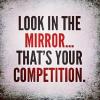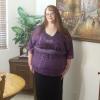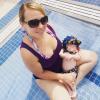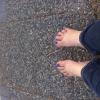Search the Community
Showing results for 'alcohol'.
Found 17,501 results
-


Alcohol and the Social Drinker
NewBeginning2014 replied to Denise73's topic in Gastric Sleeve Surgery Forums
when the girls get together, there is alcohol involved. At four weeks post-op, I met with friends and had one glass of wine. I sipped slowly and it took me the whole evening to finish it off. (I also drank a large glass of Water with the wine) Refills kept coming but no one seemed to notice I had the same glass all night. I like the idea of saying you are eliminating alcohol as part of you weight loss program. (I haven't told my friends of my surgery but have told them of my added exercise and food changes as the reason for my weight loss.) Good luck to you! -
My mom had Roux-en-y and 15 years later she is still laid out for 30-60 minutes from "sugar overdose". it can happen by eating at a BBQ and they don't tell her what's in the sauces. I seen it happen from alcohol sugars, sauces, drinks, food everything has to be tested with a tiny bite or asks about ingredients. I though that was because of the intestine rerouting. But I see here sleevers have the same issues? Is that true?? Not that I plan to run out to a chocolate fountain, but I have seen a piece of candy make her "spin" for like 30 min. Is it extreme? Why does it happen?
-


Am I wrong for comparing my food addiction to a drug addiction?
SandyM replied to Wendydarling19's topic in LAP-BAND Surgery Forums
I deal with addictions all the time in my work. Personalities are what makes it the most different. With food addiction, we usually and nearly always publicly display the results of our addiction, causing us to become defensive and shamed. You never see a naturally skinny person complain about food addiction. It's not a problem for them. I had a counselor tell me once if alcohol causes you problems then you have an alcohol problem. Most recovering drug addicts like to wear their demon as a badge, food addicts spend a lot of time trying to put ours away. Drugs and alcohol I put away for good along time ago, food is an addiction I have to learn to live with because it's something I can't live without. So food is an addiction...an acceptable one. It's obesity that's unacceptable. -


Am I wrong for comparing my food addiction to a drug addiction?
LI Lady replied to Wendydarling19's topic in LAP-BAND Surgery Forums
Addiction is addiction. It comes in many forms, but is a struggle. food addiction is unique because we need food to survive. People with addictions with drugs or alcohol can quit the thing they are addicted to. Food addiction requires a different type of daily navigation to maintain recovery. You were absolutely not wrong in your comparison. -


Am I wrong for comparing my food addiction to a drug addiction?
gowalking replied to Wendydarling19's topic in LAP-BAND Surgery Forums
The definition of addiction is noted below. I see no difference between addiction to drugs or alcohol and addiction to food. I see people all the time just stop when they have had enough to eat. Stopping was always a struggle for me. Even now, I can stop but I think about eating more so I'm still a foodaholic, simply in recovery. How is that different from any other addiction. It's not. Addiction is a primary, chronic disease of brain reward, motivation, memory and related circuitry. Dysfunction in these circuits leads to characteristic biological, psychological, social and spiritual manifestations. This is reflected in an individual pathologically pursuing reward and/or relief by substance use and other behaviors. Addiction is characterized by inability to consistently abstain, impairment in behavioral control, craving, diminished recognition of significant problems with one’s behaviors and interpersonal relationships, and a dysfunctional emotional response. Like other chronic diseases, addiction often involves cycles of relapse and remission. Without treatment or engagement in recovery activities, addiction is progressive and can result in disability or premature death. -


Am I wrong for comparing my food addiction to a drug addiction?
sgreen721 replied to Wendydarling19's topic in LAP-BAND Surgery Forums
Absolutely not!! A food addiction is just as easy to relapse! Almost easier, because everywhere you go there is food!! EVERYWHERE!!!! You can't walk into a grocery store and buy heroin. An addiction is a addiction. Whether it's food, drugs, alcohol, or tabacco!!! -


HELP ME! Pre-op diet and migraine!!
Writerjennifer replied to twiggysmiff's topic in POST-Operation Weight Loss Surgery Q&A
I have migraines, used to have them 3 to 4 times a week. I have greatly reduced the number and intensity of my migraines by avoiding triggers: Fake sugar (all kinds for some people, Aspartame for most) MSG Citrus chocolate Caffiene Nitrates and Nitrites Aged cheese Alcohol Bananas Nuts Processed foods like bacon, sausage, hot dogs You don't have to eliminate everything forever, but the book I read recommends eliminating everything that might be a trigger for 1 to 3 months, then adding back things one at a time to see where you're triggers are. Triggers are cummulative, so sometimes you can have chocolate, and be fine, but for me, if the weather is bad, one cookie will push me over the edge into a migraine. If you're interested, the book is Heal Your Headache. I have told my nut I can't eat fake sugar because of the migraines and she scoffed, so she wasn't helpful. But someone on the forum suggested that we (those with migraine issues) advise the hospital of the fake sugar 'allergy' at checkin and whenever discussing allergies. If you don't want to go all the way with all the possible migraine triggers... try eliminating the fake sugar. I had fake sugar by accident and got a migrain in less than 30 minutes. It's my worst trigger. Good luck! Hope the headaches cease. -
Nah....they say mid 70's. I'm not swimming outdoors till it's alot hotter. The alcohol though....hmmmm...I think that might work just fine... See ya tomorrow!
-
As long as your in weight loss mode your shouldnt drink. Alcohol reduces an enzime in your body required to breakdown the fat you want to lose for 3 days. That's right one drinks significantly reduces your weight loss for 3 days. In essence, slows your weight loss down to half. Personally I dont think 20 year olds have enough experience in life to handle the mental pressure of bariatric surgery. I know I would not have for exactly what your concerned about, drinking. Good luck on your journey. Also leaving your comfort zone 3 days after surgery would not be my first choice.
-


no more "normal" food ever?
Writerjennifer replied to nasuscat's topic in PRE-Operation Weight Loss Surgery Q&A
I am pre-op... so you may take this for what it's worth. My nutritionist basically threatened to not recommend me for surgery because I kept saying I didn't want to give up foods like pizza, that I would just eat less of them. She insisted that is not how it works. Also, my surgeons office requires a "Steps Class" in which they gave us a list of behaviors that will ensure our failure, i.e. "things to avoid". Such as eating foods with more than 20% or more of Daily Value of Fat, more than 10 grams of sugar per serving, eating candy, drinking soda or alcohol, etc. If we want to succeed... we need to accept that these foods are no longer in our best interest. I can't say I have learned this yet. But I refuse to go through the surgery and weight loss only to gain it back by returning to old habits. Just a suggestion, this is something I am finding out about myself... healthy food can taste good too. Fajita veggies are yummy, even without the tortilla. I never knew this. lol. And last little bit I learned in class... rank all the foods you eat on a scale of 1 to 10. then eliminate all the 1's and 2's and all the 9's and 10's. If you don't like it, don't eat it. Same goes if you like it too much. Anyway... way more info than you wanted, I guess. Good luck! -
I had the gastric sleeve 2 years ago. I have lost 100 lbs. I am able to drink alcohol but one drink will be enough and it saves money. Lol. I just started having gallbladder issues 5 months go when I was 8 months pregnant. I am seeing my surgeon next week for a consultation to get it removed. The pain is ridiculous but I had to wait to get it out because I was pregnant. As for the bell peppers it is to had to digest the soon after surgery. Also even though I was back to work 2 weeks later, I don't think you will be up to going out that soon. You will be hunched over till your muscles heal from the surgery. I do this my stomach has stretched out more. I lost the weight the first year and have not lost anymore or gained. I only gained 20 lbs with my baby. I also lost the 20 lbs 4 weeks after birth. Just nothing more. I hope this helps.
-
For me, it is getting to the root cause of why I abused food. Every time I put something into my mouth, I try to understand the reasons. If I understand why I turn to food then I don't have to do actions which may cause me harm, whether that be gambling, alcohol, shopping, sex ... fill in the blank. Cross-over addictions are real and I believe, for me, the only way I can prevent further behaviors which are not in my best self interest, is to understand why I turn to food when I am not really hungry.
-
So right now I'm post-op, But I've been reading a lot online here and other sources about the onset of acid reflux and GERD after Bariatric surgery. My concern is that my family (on my father's side) has a history of horrible heart burn and GERD, but they also have a history of bad eating habits and smoking/drinking too excess (lots of alcoholics), My grandfather also died of throat cancer and my father followed a year later due to lung cancer. Though I've never suffered any sort of acid reflux or heart burn related issue outside of "once in a great while" if I eat something specific. Is GERD as big of a problem for post-op patients as I hear it is?, or is the Internet just trying to scare me out of getting the sugery? Do any of you suffer horribly from GERD? Is it something you had before surgery or is it something that came with it?
-
Just a heads up. At group we were informed that a study showed that 10% of formerly non-drinking RNY patients became alcoholics. I was shocked and concerned, coming from a family of alcoholics. 5 out of 7 of us became alcoholics - only myself and one brother dodged that particular bullet. I do recognize the addictive personality in myself. I was addicted to sugar and carbs and live in fear of substituting those addictions for something equally destructive, like alcohol. Just be aware of the danger...
-


Need help please. Cannot find a WLS program! Health in danger...
ladywolfsong posted a topic in PRE-Operation Weight Loss Surgery Q&A
Hello. My name is Heather. I tried to start my WLS journey 3 years ago. I have been denied even admission to a program, much less surgery, due to my diagnosis of Borderline Personality Disorder. I was initially denied in 2011 due to my history of psych hospitalizations (all voluntary, where I asked for admission) for depression/Borderline resulting in suicidal thoughts. I asked for reconsideration in the last couple weeks due to my recent diagnosis of Stage 3 Non-Alcoholic Steatohepatitis. I was told the NASH is progressing rapidly, and unless I can get the weight off, I will have cirrhosis of my liver within 5 years. The programs I have contacted so far are now telling me that the Borderline diagnosis precludes me from surgery permanently, because "Borderlines have poor coping skills". This may be true of the general population of Borderlines, but no effort was made at speaking with me, or with my treatment team, including my psychiatrist and therapist, who have known me for more than 5 years and support me getting the surgery. I feel that my health and my very life are in danger, and I cannot lose the weight on my own. I have been to 2 different dieticians, and tried Weight Watchers. I have a problem with self-motivation and I also have a major sugar addiction. I think the Roux-en-Y will help with the sugar addiction, and there is a lot of support and encouragement within a good wls program, I have found. I have done a lot of research into the RNY over the last 3 years...books, articles, websites, YouTube videos....I am so glad to have come across this site, and hope someone can point me in the right direction! -


Foods that make you barf! Literally.
Rena's got this replied to dreamscometrue's topic in Rants & Raves
Nothing....my sleeve is very accommodating, just very restrictive. I can eat a little bit of ice cream, fried green tomatoes, a bloomin onion from Outback, pulled pork, steak, shrimp.... anything food grade, just not a lot of it. I haven't yet tried alcohol, pecan pie, twinkies, or anything with lots of sugar. I would absolutely love some praline caramel pecan ice cream in a waffle cone, but would absolutely hate to throw out the part I couldn't eat, so I just don't order one. I used to love Pan pizza from Pizza Hut, but haven't been there since my surgery. Still love pizza, but just can't eat very many carbs. My only symptom if I overeat is that I will get really intense hiccups. You can't eat anything when you are hiccuping...lol. -


What to drink at a cocktail party?
Rena's got this replied to Happygoomom's topic in Gastric Sleeve Surgery Forums
Oh yes! Lemonade with a lemon slice would be wonderful. I'm not much of a drinker, so I don't know a lot about what would work, but could you get a diet margarita and just hold the alcohol? You could still rim the glass with salt. Or better yet, a frozen diet virgin margarita... -
Hi, This Saturday, I want to attend a 40th anniversary cocktail party. I'll be two weeks post surgery. I won't be eating at the party but I would like to have a drink. Since carbonated beverages aren't allowed and sweet cocktails will just make me sick, any suggestions? I know alcohol is discouraged, so wine isn't an option either. I would love to hear what others do in these type of situations.
-
Originally posted on 3/30/2014 Link to original post http://www.bigfatloserblog.com/2014/03/back-to-drawing-board.html So, a big blow to the morale! Back in January I got call from Michael at AR Rehab congratulating me for being approved for the Gastric Sleeve through a state program that would pay for my surgery. This came after 2 years of work. Doctors appts, food journals, sleep studies, psych evals, and much much more. He explained that funds would be available in March, and that I should call him back then to discuss it further. I waited until about the middle of the month to call him, and tried for over a week. He was either out of the office "temporarily" or on the other line, or a myriad of other excuses. Finally last week I received a call back from him and he left me this voicemail. (The name was distorted on purpose) I was left scratching my head after this voicemail, because it was pretty unclear. "Is he saying that they aren't going to pay for it?" I was unhappy with the voicemail, and so I called him up. I could tell by his tone he was immediately on the defense. I asked him to elaborate what the VM meant. Michael: "You listened to it didn't you? I said everything in the voicemail" Me: "Well, yea, but what does it mean that you are re-evaluating spending? Are you saying you are cutting the program." Michael: "Look Ronnie, I could have just told you no back in January, but I went to bat for you. You are being ungrateful" Me: "No Sir, I was very grateful when you told me I was approved. I told my entire family, I blogged it, and I have been expecting this surgery ever since. I would have rather you told me no in January than to congratulate me on something that wasn't a done deal." Michael: "I feel like you are being rude." Me: "I feel like you lied to me, and my whole family." Michael: "I can see that this conversation isn't going anywhere, so I am going to let you go and get back to work." That was all she wrote. I stared at my phone for a minute. I literally felt like I was punched in the gut. My next call was to Blue Cross Blue Shield. I would have to be out of pocket 4 Grand, but I was confident that I would have support to help me get the surgery. I explained that I had a packet put together already with everything they would need to approve me. Doctor's notes, medical records, (about 60 pages of information). The rep said that they would not be able to accept that from me, but instead would have to receive it from each perspective doctor. I explained that it took over 2 years and thousands of dollars to gather this information and I can't afford to go back to the doctors and get the same paperwork I already had. They insisted.... So here I am, back at square one. 400 lbs, and no closer to surgery than I was 2 years ago. So unless I squat and lay a dozen golden eggs, and shell up $16k, I'm starting over. However, I am not going to be stagnant while waiting for this to come together (if it ever does) The fact is, ever since I learned I was getting the surgery I have let myself go. Red Bulls, fast food, alcohol. All because I thought, what the hell, I'm getting the surgery in 2 months anyhow. NOPE NOPE AND NOPE. I immediately regret that. Starting tomorrow, I am going to give the Keto Diet a shot. A real shot. It is a little controversial and defies common knowledge of how diets work, but I have seen a lot of success stories revolving around this diet. And, it's gaining popularity among medical community. However, it is expensive. Let face it. Meat, Cheese, and fresh veggies are high. My health is more important though and I need to make sacrifices elsewhere so I can afford it.
-


Eating around the sleeve
Cbluewinds replied to Unhappysleever's topic in POST-Operation Weight Loss Surgery Q&A
Hello Everyone...I had my surgery 8/17/2012. It was my new lease on life! My highest was 348 and since surgery my lowest has been 229...for me...amazing! Yes I want to lose more but...I too am sugar and carb addicted. I know there are some people who swear they will always follow the rules and do...I did. But I have also been struggling because of my need to have food and alcohol...socially and I love food. You can slip with the sleeve. Sometimes life gets in the way...excuses. But today...right now...I have to take charge and remember I eat to live not live to eat. I have to remember two years ago the pain I had physically and emotionally an how I was blessed to have a restart button. As an addict I must encourage my fellow addicts to remember who you were and how we hoped and prayed for the ability to walk without pain, play with our kids and/or grand kids, shop in the regular sized stores, sit in a chair without fear of breaking it, not need an extender on an airplane, have friends and family stop telling you what your problem was...The list goes on and on for each of us. I am beginning again to touch my dreams...today! This may not be anyone's truth but I just needed to vent and recommit publicly...Blessings! -


1.rapid loss=runs 2. Only100 pound weightloss ?
Scylla replied to TamaraS's topic in POST-Operation Weight Loss Surgery Q&A
Tamara, have you followed up with your surgeon's office or NUT recently? Maybe a visit with them will help get you back on the right track. I'm newly sleeved, so the information is fresh in my mind, but my surgeon's rules are 3 meals a day and nothing in between except for Protein shakes if you are not getting in your protein. Also, no alcohol. I know a lot of people do imbibe after they are sleeved, but I know in the past drinking has definitely affected my diet inhibitions! It caused me to throw caution out the window and just eat whatever I felt like. I don't want to go back there, so I don't plan to go back to drinking at all. Plus, alcoholic beverages are just empty calories. I'd rather eat my calories! -


Eating around the sleeve
Texasmeg replied to Unhappysleever's topic in POST-Operation Weight Loss Surgery Q&A
Also, you can drink lots of calories in ways other than alcohol (certain coffee drinks, for example). -


Eating around the sleeve
par1959 replied to Unhappysleever's topic in POST-Operation Weight Loss Surgery Q&A
.Eating around your sleeve can be caused by high calorie liquids/sliders, alcohol, grazing and not eating your dence protien first according to my doc. -


Recently Lost a Best Friend Because of My Decision to Get Bariatric Surgery
frankt04 replied to Sharon Chen's topic in General Weight Loss Surgery Discussions
Someone once said to me "gastric bypass is taking the easy way out" To that i said "didn't you tell me you where sooo thankful your father got a liver transplant (after years of drinking)" Obesity like alcoholism is a disease. The root word of ignorance is ignore, she is ignoring your health by telling herself your having " cosmetic surgery" is a liver transplant cosmetic? -
Not all surgeons require the liquid diet. Mine didn't at all and he has done over 1800 sleeves. Just Atkins style for a week low carb. And I get a last supper the night before surgery including alcohol. I feel very blessed!









